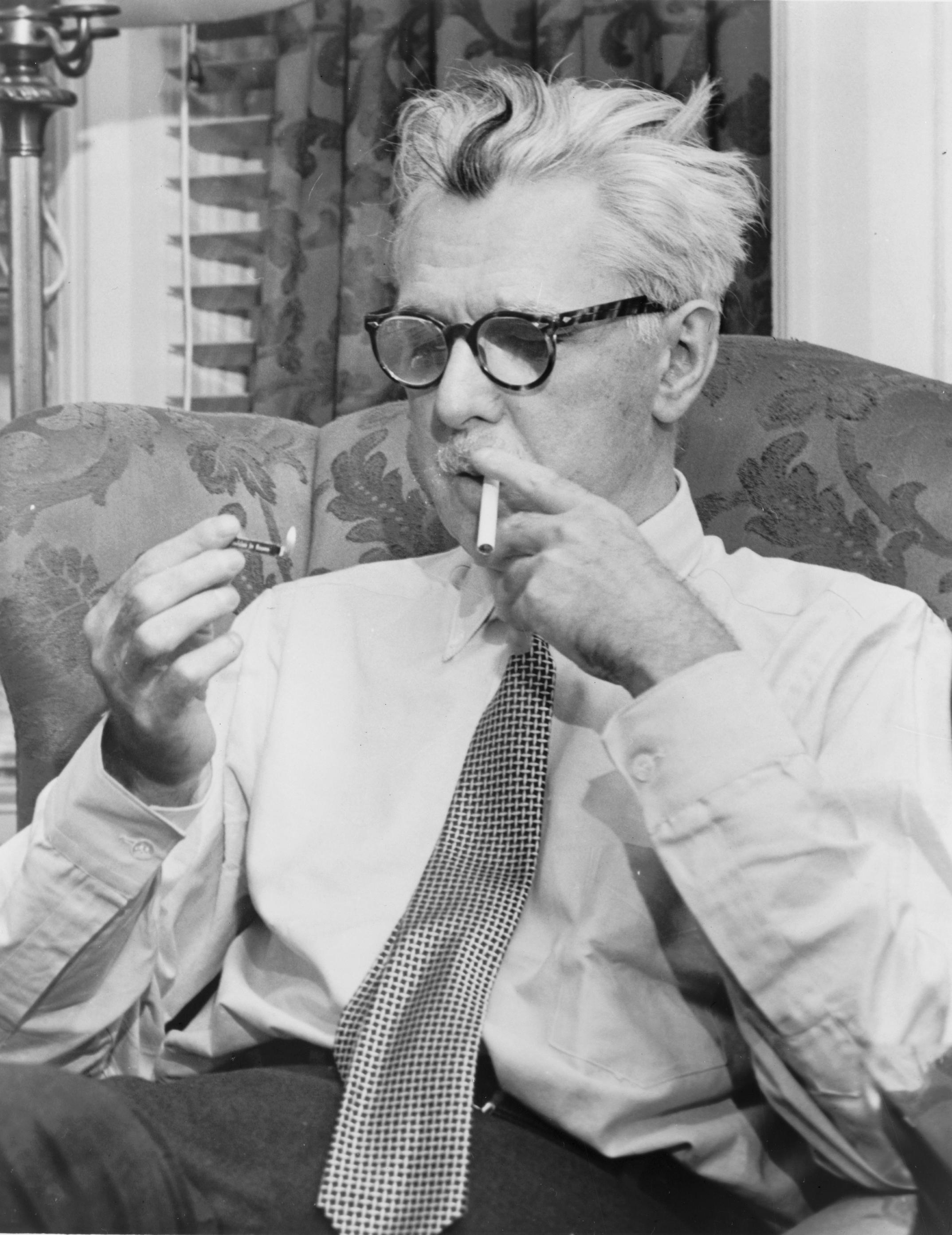James Grover Thurber, , foi um escritor, humorista, cartunista, jornalista e dramaturgo americano.Thurber era mais conhecido por seu desenhos animados e contos, publicados principalmente na revista The New Yorker e recolhidos em seus numerosos livros. Um dos mais populares humoristas de seu tempo, Thurber retratou as frustrações e excentricidades das pessoas comuns. Em colaboração com o seu amigo de faculdade Elliott Nugent , ele escreveu a comédia da Broadway O Animal macho, mais tarde adaptada para um filme, estrelado Henry Fonda e Olivia de Havilland.
Devido a um ferimento de infância, Thurber perdeu uma vista. Foi progressivamente perdendo a visão no olho que lhe restou. A sua vista piorava à medida que ia crescendo. Também sofreu de um problema na tireóide por mais de 2 anos nos anos 50, e morreu devido às complicações que surgiram após a remoção de um tumor benigno no cérebro.
Thurber trabalhou arduamente durante os anos 20, tanto nos Estados Unidos como em França, para se estabelecer como escritor profissional. Entretanto, único entre as principais figuras literárias americanas, ficou igualmente bem conhecido pelos seus simples, surrealistas desenhos e cartoons.
Wikipedia
✵
8. Dezembro 1894 – 2. Novembro 1961
•
Outros nomes
James Grover Thurber
